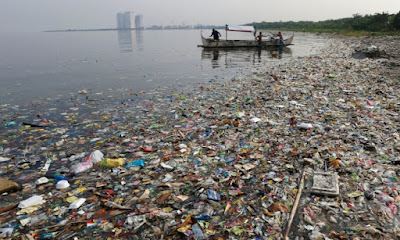The Continuing Campaign for Incineration
Hello,
Whilst I agree that we need a pragmatic approach to waste management, it seems to me that the emphasis placed on incineration, or energy from waste (EfW) plants, as they are so often (and often misleadingly) called is a misplaced one. An example of this was the Radio 4 programme yesterday "The Investigation". Whilst the programme started in a positive fashion, interviewing Martin Bigg from the Environment Agency who stated that recycling starts with the householder, and that there is a much better quality of material that comes out of systems that do not co-mingle material; it then made the argument that the drop in prices for recyclate coupled with the poorer quality material that comes out of MRFs (material reclamation facilities) is a reason for more incineration of waste.
As Mal Williams Chair of the Campaign for Real Recycling states in his response to a recent leader article in The Guardian, the emphasis should be on ensuring a higher quality end material (through segregating materials better at the source of production - for example kerbside recycling) and developing end markets for the materials in the UK.
The problem with incinerators is that they have a 25 year life span so require over their long contract period some of the highest calorific waste to go through them, ie the materials that give us the greatest benefit from being recycled! Whilst I don’t reject incinerators completely, I believe that burning resources must be a last resort and many local authorities can get bewitched by large companies with big kit who claim that the technological fix is the best one – its much easier, less hassle and is arguably more sexy and exciting than people simply putting the right material in the right container. The thing is, if householders learn to separate their own waste it engages them much more in thinking about the waste they produce, rather than the stick it in one bin and don’t think about it approach which is ultimately unsustainable.
We really must not lose the momentum in improving recycling rates and practices that has come about thanks to organisations such as WRAP, CRN and its sister organisations Cylch in Wales and CRNS in Scotland.
Lucy.
Whilst I agree that we need a pragmatic approach to waste management, it seems to me that the emphasis placed on incineration, or energy from waste (EfW) plants, as they are so often (and often misleadingly) called is a misplaced one. An example of this was the Radio 4 programme yesterday "The Investigation". Whilst the programme started in a positive fashion, interviewing Martin Bigg from the Environment Agency who stated that recycling starts with the householder, and that there is a much better quality of material that comes out of systems that do not co-mingle material; it then made the argument that the drop in prices for recyclate coupled with the poorer quality material that comes out of MRFs (material reclamation facilities) is a reason for more incineration of waste.
As Mal Williams Chair of the Campaign for Real Recycling states in his response to a recent leader article in The Guardian, the emphasis should be on ensuring a higher quality end material (through segregating materials better at the source of production - for example kerbside recycling) and developing end markets for the materials in the UK.
The problem with incinerators is that they have a 25 year life span so require over their long contract period some of the highest calorific waste to go through them, ie the materials that give us the greatest benefit from being recycled! Whilst I don’t reject incinerators completely, I believe that burning resources must be a last resort and many local authorities can get bewitched by large companies with big kit who claim that the technological fix is the best one – its much easier, less hassle and is arguably more sexy and exciting than people simply putting the right material in the right container. The thing is, if householders learn to separate their own waste it engages them much more in thinking about the waste they produce, rather than the stick it in one bin and don’t think about it approach which is ultimately unsustainable.
We really must not lose the momentum in improving recycling rates and practices that has come about thanks to organisations such as WRAP, CRN and its sister organisations Cylch in Wales and CRNS in Scotland.
Lucy.
| |  |  |

Comments
Post a Comment